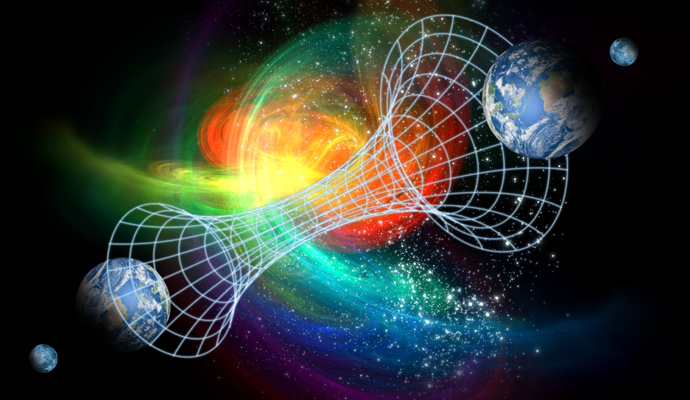5 legitimate scientific controversies
Climate change is accepted by most researchers. But the health benefits of red wine? That's controversial.

A free daily email with the biggest news stories of the day – and the best features from TheWeek.com
You are now subscribed
Your newsletter sign-up was successful

With our minute-by-minute news cycle and omnipresent social media, you'd be excused for thinking evolution and climate change are hot controversies among scientists. They're not: Darwin's theory and evidence of global warming are well established and accepted by the vast majority of researchers. But tackling real controversies head-on is at the heart of the scientific process. These five ongoing debates are just a few of the contentious conversations that continue to perplex and intrigue scientists today.
1. How should we measure quantum mechanics?
Measurement is everything in quantum mechanics, and for more than a century, physicists have argued about the correct way of doing it. In the 1920s, Danish physicist Niels Bohr and his colleagues devised the Copenhagen interpretation of quantum mechanics, holding that all atomic particles exist in all states until they are observed (or measured) in specific positions. Austrian physicist Erwin Schrödinger countered with a hypothetical situation in 1935: a cat is placed in a sealed box with a bit of radioactive material, a Geiger counter, and a jar of poison. When the radioactive material decays, the Geiger counter beeps, and triggers the release of the poison, killing the cat. But according to the Copenhagen interpretation, the radioactive material could be both decayed and not decayed until we measure it; therefore the cat could be both alive and dead until we open the box. "Schrödinger's Cat" exposed the bugs in the Copenhagen interpretation when it's applied to practical, real-life situations, and physicists continue to disagree over the right way to measure quantum particles (sometimes on the stage of the World Science Festival). But no cats were ever harmed in the debate.
The Week
Escape your echo chamber. Get the facts behind the news, plus analysis from multiple perspectives.

Sign up for The Week's Free Newsletters
From our morning news briefing to a weekly Good News Newsletter, get the best of The Week delivered directly to your inbox.
From our morning news briefing to a weekly Good News Newsletter, get the best of The Week delivered directly to your inbox.
(More from World Science Festival: Nikola Tesla, father of the death ray)
2. Can we clone extinct species?
Great auks, dodo birds, and passenger pigeons are just three of many species that have recently gone extinct thanks to human activity. Modern cloning technology could, theoretically, make it possible to resurrect extinct organisms using DNA extracted from specimens in museum collections. Proponents of cloning argue that bringing back long-gone fauna would allow us to study their genomes and offer clues to genetic vulnerabilities in endangered species today. But opponents say it's not that easy. Resurrecting organisms is a deeply imperfect process, even with fresh DNA from living animals. Dolly, the cloned sheep, emerged only after years of failed experiments. Cloned organisms also bear genetic abnormalities that limit their survival chances. While cloning and other genetic technologies may improve in the future, don't pin your hopes on a real-life Jurassic Park just yet (especially since it's probably impossible for scientists to extract even a smidgen of dinosaur DNA).
3. Is red wine really good for your health or not?
A free daily email with the biggest news stories of the day – and the best features from TheWeek.com
Oenophiles cried vive le vin! when studies in the 2000s suggested that resveratrol, an antioxidant compound in grape skin and chocolate, was the key to the "French paradox" — the fact that the French have low rates of heart disease despite their cholesterol-heavy diets. Antioxidants protect cells from damage, thus slowing or preventing illness. But according to the Mayo Clinic, you'd need to consume 1,000 liters of Bordeaux a day to get a dose of resveratrol equivalent to what the lab mice got, and whether those benefits can translate to humans is hotly debated. Recent studies on animals have found that resveratrol may help prevent and/or treat diabetes, some cardiovascular problems and cancer, but studies with human subjects have not found any blockbuster effects so far. And in 2012, leading resveratrol researcher Dipak Das of the University of Connecticut retracted more than 100 published studies on resveratrol in which he had fudged results. So, though the American Heart Association says a daily glass of wine won't hurt you, resveratrol may not be the fountain of youth.
4. Do parallel universes exist?

Other realities probably won't resemble the Seinfeld episode with Bizarro Jerry, George, and Kramer (or the bearded denizens of the evil Star Trek reality), but parallel universes may actually exist. According to string theorist and World Science Festival co-founder Brian Greene, the hypothetical multiverse spans all time, matter, space, and energy. Our known universe may be just one of several connected by particle "strings." Similarly, the "many worlds" theory of quantum mechanics, proposed by Hugh Everett, suggests that all of the observations within a range of probabilities correspond to different universes. Prominent physicists like Stephen Hawking and Michio Kaku also believe that parallel universes are mathematically possible. But many scientists aren't quite convinced, saying that the theory of the multiverse is untestable, relegating it more to philosophy or science fiction than actual science (this is another debate that you can see on the World Science Festival stage).
(More from World Science Festival: Coming out of the laboratory closet)
"Invoking an infinity of unseen universes to explain the unusual features of the one we do see is just as ad hoc as invoking an unseen Creator," Arizona State University physicist Paul Davies wrote in a New York Times piece. "The multiverse theory may be dressed up in scientific language, but in essence it requires the same leap of faith."
But Stanford University physicist Andrei Linde argues that the multiverse is the best way to provide a rational explanation for the way that this universe seems to be fine-tuned to promote the existence of life. If the masses of protons and electrons were just a little bit different, for example, life as we know it wouldn't exist. If there was just one universe, "we would need to speculate about the divine cause making the universe custom built for humans," Linde wrote at Edge.org. "Meanwhile, in the multiverse consisting of many different parts with different properties, the correlation between our properties and the properties of the part of the world where we can live makes perfect sense."
Most multiverse skeptics don't deny that there may be aspects to the universe that are beyond our line of sight. But they think that answers to the stubborn questions that prompted the development of multiverse theory — such just how and why the Big Bang shaped space-time the way it did — are likely to be found in the one universe that we can be completely sure exists: our own.
(More from World Science Festival: Who are the best (and worst) fathers in the animal kingdom?)
5. What killed the dinosaurs?
About 65 million years ago, the last Triceratops bit the dust — but paleontologists still don't agree on why it died. Here are the facts: global climate change as well as short-term changes in precipitation, temperature, and sunlight took place at the end of the Cretaceous period and beginning of the Paleogene (formerly Tertiary) period. At that time, 70 percent of life on Earth, including dinosaurs, went extinct. And that's where consensus ends. One school of thought maintains that the cause of this mass extinction was "intrinsic:" a combination of devastating volcanoes and Earth's shifting plate tectonics over a few million years eventually killed the dinosaurs and most marine life. The other, "extrinsic" explanation suggests that a colossal meteorite slammed into Earth. The impact then unleashed a cloud of iridium, still visible in the geologic record, as well as sudden, deadly climate change. Even today, researchers are unearthing new clues to the dinosaurs' demise.